- Home
- Bobby Akart
Economic Collapse (Prepping for Tomorrow Book 2) Page 19
Economic Collapse (Prepping for Tomorrow Book 2) Read online
Page 19
"So," said Sarge, pausing to bring the class back to attention, "to Miss Crepeau's point, Empires have historically financed their governments through force and theft. The great Empires conquer their lesser opponents, take everything they have, and extort protection money out of the conquered citizens. This is how all of the great Empires of the world were formed.
"Some might argue that the United States is different—and in some respects it is," said Sarge. "America was not formed by conquering another, less powerful opponent, although the Native Americans might disagree. The Founding Fathers sought independence from what they considered oppressive rule from Great Britain. But the formation of the great American Empire, if you will, is only part of the equation."
Sarge brought up a new screen.
Who's going to pay for this new Empire?
"Part two of the formation of a new Empire involves financing its operations," said Sarge. "America didn't conquer another nation and plunder its wealth. The premise of the American Revolutionary War included a revolt against the implementation of taxes on the citizenry. Clearly, there wasn't a stomach for that. What did they do to pay for this new government?"
The young law student, Ocampo, eagerly raised his hand.
"Mr. Ocampo," said Sarge, "what do you think?"
"They fired up the printing presses, sir," said Ocampo.
"That's true to an extent," said Sarge. "The Constitution provided in Article One that the federal government had the sole power to coin money and regulate the value thereof. But the Constitution was devoid of reference to paper money. You see, the Founding Fathers had some experience with paper money. The Continental Congress, as Ocampo suggested, fired up the printing presses and financed the American Revolution with a newly minted currency — continentals. Unfortunately, although I would argue predictably, the continentals became worthless by the end of the war—to the point they were never spoken of again.
"It wasn't until the Civil War when the National Banking Act was passed that the paper dollar became the fully accepted currency of the land," said Sarge. "The United States adopted a gold standard, and its currency value became universally accepted. This leads us to one of the most important acts of participation by our country in global governance in its history—the Bretton Woods Conference."
Sarge changed the slide.
"After the conclusion of World War II, delegates from the forty-four Allied nations participated in the UN Financial and Monetary Conference in Bretton Woods, New Hampshire. This conference produced the International Monetary Fund and the World Bank," said Sarge. "At the time, the United States was the world's greatest economic power and had a lot of influence on the agreements reached. Study the history and background of the Bretton Woods system. This is a prime example of the impact of global governance." Sarge changed the slide again.
The Nixon Shock
"Welcome to the Nixon Shock, the mother of all government economic intervention," said Sarge. "In essence, among other things, President Nixon abandoned the gold standard and the United States dollar became strictly a fiat currency. This is when we fired up the printing presses, Mr. Ocampo, and we haven't stopped since.
"You see, America never grasped the whole concept of being an empire. We conquered, but we did not take anything like our predecessors. In fact, history will show that we lose money on every conquest. Typically, after destroying another country in battle, we then move in and pay to fix it back. We lose money every time," said Sarge, returning to a previous slide.
Who's going to pay for this?
"So how does a nation that conquers without obtaining the spoils of victory sustain itself?" asked Sarge. "They do it with debt. No other Empire has ever tried to finance itself by borrowing from others. No other nation has ever tried to borrow its own currency, which it prints any time it chooses. As we have seen in recent years, if the burden of repaying this debt is too high, the Federal Reserve simply prints more dollars to satisfy its creditors. They call this Ponzi scheme quantitative easing. The United States government is paying its prior debt obligations by issuance of new debt obligations or the printing of new money out of thin air. There are people sitting in Federal Prison for this exact type of scheme.
"Today, our national debt, the amount we owe our creditors, is twenty trillion dollars. Every year, we add another one point two trillion to this total," said Sarge. "Many argue that this trend is unsustainable, which leads us back to our original premise." Sarge changed the slide back to the beginning. He had come full circle.
ALL EMPIRES COLLAPSE EVENTUALLY
"All empires collapse when they are defeated by a more vigorous empire, such as China, Russia or any of a number of rogue nations who possess nuclear capabilities," said Sarge. "Or Empires collapse when their financing runs out. America has built up a tremendous amount of debt that is owed to countries that do not like us very much—like China and Russia.
"I want you to consider this. Should China and Russia elect to devalue our currency, resulting in our allies such as Germany and Japan becoming skittish about purchasing more of our debt, what would be the fate of the almighty dollar?" asked Sarge rhetorically. "If the United States cannot continue to finance itself via debt instruments, then it must tax its citizenry at an unprecedented rate. I submit to you that there isn't enough income or wealth in this country to cover the bill."
Sarge pointed to the screen.
"I will leave you with this. If all empires eventually collapse, does this premise also apply to the United States? If so, is this the beginning of the end?"
APPENDIX B
PREPAREDNESS CHECKLIST
Provided by www.FreedomPreppers.com
PREPPERS CHECKLIST
Go Back to Contents
APPENDIX C
The Condensed Wealth of Nations by Adam Smith
By Eamonn Butler in association with the Adam Smith Organization
Reprinted with Permission from AdamSmith.org.
Adam Smith's The Wealth of Nations is one of the most important books ever written. Smith recognised that economic specialization and cooperation was the key to improving living standards. He shattered old ways of thinking about trade, commerce and public policy, and led to the foundation of a new field of study: economics.
And yet, his book is rarely read today. It is written in a dense and archaic style that is inaccessible to many modern readers. The Condensed Wealth of Nations condenses Smith's work and explains the key concepts in The Wealth of Nations clearly. It is accessible and readable to any intelligent layman.
This appendix also contains a primer on The Theory of Moral Sentiments, Adam Smith's other great work that explores the nature of ethics.
Chapter 1 Introduction by Eamonn Butler
Adam Smith's pioneering book on economics, The Wealth of Nations published in 1776, is around 950 pages long. Modern readers find it almost impenetrable: its language is flowery, its terminology is outmoded, it wanders into digressions, including one seventy pages in length, and its numerous eighteenth-century examples often puzzle rather than enlighten us today.
And yet, The Wealth of Nations is one of the world's most important books. It did for economics what Newton did for physics and Darwin did for biology. It took the outdated, received wisdom about trade, commerce, and public policy, and re-stated them according to completely new principles that we still use fruitfully today. Smith outlined the concept of gross domestic product as the measurement of national wealth; he identified the huge productivity gains made possible by specialization; he recognized that both sides benefited from trade, not just the seller; he realized that the market was an automatic mechanism that allocated resources with great efficiency; he understood the wide and fertile collaboration between different producers that this mechanism made possible. All these ideas remain part of the basic fabric of economic science, over two centuries later.
So The Wealth of Nations is worth reading, but nearly impossible to read. What we need today is a much shorter vers
ion: one that presents Smith's ideas, not filtered through some modern commentator, but in modern language. This book aims to do precisely that, updating the language and the technical terms, with just enough of Smith's examples and quotations to provide a sense of colour, and with marginal notes to explain how today's economic concepts have developed from Smith's early ideas.
The same treatment is given to The Theory of Moral Sentiments (1759) – Smith's other great book, and the one that made him famous. A product of the philosophy course that Smith taught at Glasgow University, it explained morality in terms of our nature as social creatures. It so impressed the young Duke of Buccleuch's stepfather that he promptly hired Smith (on a handsome lifetime salary) to tutor the boy, and escort him on an educational journey through Europe. With time on his hands, and new insights gleaned on these travels, Smith began sketching out the book that would become The Wealth of Nations. He spent another decade writing and polishing the text at his home in Scotland, and debating his ideas with the leading intellectuals of the age in London. The finished book was another huge commercial success, rapidly going into several editions and translations.
It was revolutionary stuff. It hit squarely at the prevailing idea that nations had to protect their trade from other countries. It showed that free trade between nations, and between individuals at home too, left both sides better off. It argued that when governments interfered with that freedom with controls, tariffs or taxes, they made their people poorer rather than richer.
Smith's ideas influenced the politicians and changed events. They led to trade treaties, tax reform, and an unwinding of tariffs and subsidies that in turn unleashed the great nineteenth-century era of free trade and growing world prosperity.
Chapter 2 The Condensed Wealth of Nations
A nation's wealth is its per capita national product – the amount that the average person actually produces. For any given mix of natural resources that a country might possess, the size of this per capita product will depend on the proportion of the population who are in productive work. But it also depends, much more importantly, on the skill and efficiency with which this productive labour is employed.
At the time, this idea was a huge innovation. The prevailing wisdom was that wealth consisted in money – in precious metals like gold and silver. Smith insists that real wealth is in fact what money buys – namely, the 'annual produce of the land and labour of the society'. It is what we know today as gross national product or GNP, and is used as the measure of different countries' prosperity.
Wealth of Nations examines the mechanism by which this productive efficiency comes to be improved. Productive employment depends (it will be shown) on how and how much capital is in use. The Wealth of Nations is divided into five 'books' which are in turn divided into chapters. Where Smith writes 'stock' we would normally use 'capital' today. Book II explores this. National product is also greatly influenced by public policy, which Book III considers. Book IV appraises different theories of economics in the light of all these considerations. Book V then identifies the proper role of government, the principles of taxation, and the impact of government on the economy.
Book I: Economic efficiency and the factors of production
Specialization and productivity
The key to economic efficiency is specialisation – the division of labour. Take even the trifling manufacture of pin making, for example. Most of us would be hard pressed to make even one pin in a day, even if the metal were already mined and smelted for us. We could certainly not make twenty. And yet ten people in a pin factory can make 48,000 pins a day. That is because they each specialise in different parts of the operation. One draws out the wire, another straightens it, a third cuts it, a fourth points it, a fifth grinds the top to receive the head.
Making and applying the head require further specialist operations; whitening the pins and packaging them still more. Specialisation has made the process thousands of times more productive. This enormous gain in productivity has led to specialisation being introduced, not just within trades, but between them. Farming, for instance, becomes much more efficient if farmers can spend all their time tending their land, their crops and their livestock, rather than pausing to tool up and make their own household items too.
Likewise, ironmongers and furniture-makers can produce far more of these household goods if they do not have to dissipate their effort on growing their own food too. Even whole countries specialise, exporting the goods they make best and importing the other commodities that they need.
The greatest improvement in the productive power of labour, and the greater part of the skill, dexterity, and judgment with which it is anywhere directed, or applied, seems to have been the effects of the division of labour.
Three factors explain the enormous rise in efficiency which specialisation makes possible.
• First is the increased skill which people gain when they do the same task over and over again. The rapidity with which skilled workers can do a task is sometimes amazing.
• Second, less time is wasted in moving from one task to the next. A weaver who cultivates a smallholding has to break off weaving, fetch the farming tools, and walk out to the field. It takes time for people to get in the right frame of mind when they turn from one task to another, and back again. The importance of such disruptions should not be underestimated.
• Third, specialisation allows the use of dedicated machinery, which dramatically cuts the time and effort needed in manufactures. Often, workers themselves have invented labour-saving devices, while other improvements have come from the machine-makers, who are now a specialist set of trades themselves.
The division of labour clearly requires an advanced degree of cooperation between all those who are involved in the manufactures concerned. Indeed, the production of even the simplest object harnesses the cooperation of many thousands of people. A woollen coat, for example, requires the work of shepherds, sorters, carders, dyers, spinners, weavers, and many more. Even the shears needed to cut the wool will have required the work of miners and ironworkers. And the transportation of the wool will have required sailors, shipwrights, and sail-makers. The list is endless.
The woollen coat, for example, which covers the day-labourer, as coarse and rough as it may appear, is the product of the joint labour of a great multitude of workmen. The shepherd, the sorter of the wool, the wool-comber or carder, the dyer, the scribbler, the spinner, the weaver, the fuller, the dresser, with many others, must all join their different arts in order to complete even this homely production.
This collaboration of thousands of highly efficient specialists is a very advanced economic system: and it is, in fact, the source of the developed countries' great wealth. It means that things are produced far more efficiently, making them cheaper. Even the poorest members of society thereby gain access to a wide variety of products and services that would be completely unaffordable in the absence of specialisation.
The mutual gains from exchange Specialisation developed out of the natural human tendency to barter and exchange. When we see people who have things that we want, we know that they are unlikely to give them to us out of the goodness of their hearts. But then we might have something which they want, and which we would be prepared to give them in return.
It is not from the benevolence of the butcher, the brewer, or the baker, that we expect our dinner, but from their regard to their own interest. We address ourselves, not to their humanity but to their self-love, and never talk to them of our own necessities but of their advantages.
By 'self-love' or 'self-interest', Smith does not imply 'greed' or 'selfishness'. He has in mind a concern for our own welfare that is entirely natural and proper indeed, in The Theory of Moral Sentiments he calls it 'prudence'. And he stresses that 'justice' – not harming others – is fundamental to a healthy human society.
And this in fact is how we acquire most of the things we need – through exchange, rather than trying to make everything ourselves. A
nd the trade has made both of us better off. We have each sacrificed something we value less for something we value more.
This is another crucial insight. In Smith's world, like ours, most goods were exchanged for money rather than bartered for other goods. Since money was regarded as wealth, it seemed that only the seller could benefit from the process. It is a notion that led to the creation of a vast web of restrictions on trade, in the attempt to prevent money leaking out of a country, a town, or even a profession. But Smith shows that the benefit of exchange is mutual, so no such restrictions are needed.
These gains from exchange, and our natural willingness to do it, stimulate the division of labour. It is worth us building up a surplus of what we personally make well in order to have something to trade with other people. To take it at its simplest, imagine a primitive society where, through some particular mental or physical talents, one person is better than others at making arrows, or building houses, or dressing skins, or working metal. If, through that specialist skill, they make more of these things than they have personal need for, it gives them something they can exchange with others. So each can then focus on their efficient specialist production, and get the other things they need from exchange with other efficient producers. The smith trades surplus knives for the fletcher's surplus arrows, the tanner trades clothing for the builder's shelter. Each ends up with the mix of things they want, all of them expertly and efficiently produced.
Even the most dissimilar people can thus cooperate – though they do not do so from any great feelings of benevolence, but because both sides see a personal benefit from the exchanges that they make. Wider markets bring bigger gains The benefit that we get from exchange is what drives us to specialise, and so increase the surplus that we maintain to exchange with others. Just how far that specialisation can go depends on the extent to which exchange is possible – that is, on the extent of the market.

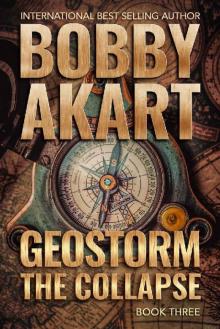 Geostorm The Collapse: A Post Apocalyptic EMP Survival Thriller (The Geostorm Series Book 3)
Geostorm The Collapse: A Post Apocalyptic EMP Survival Thriller (The Geostorm Series Book 3)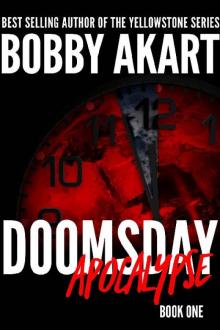 Doomsday Apocalypse
Doomsday Apocalypse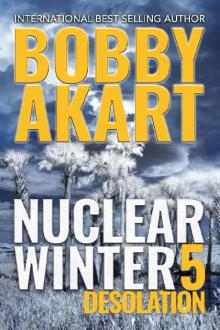 Nuclear Winter Desolation: Post Apocalyptic Survival Thriller (Nuclear Winter Series Book 5)
Nuclear Winter Desolation: Post Apocalyptic Survival Thriller (Nuclear Winter Series Book 5)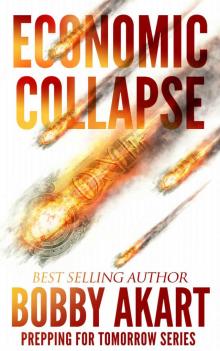 Economic Collapse (Prepping for Tomorrow Book 2)
Economic Collapse (Prepping for Tomorrow Book 2)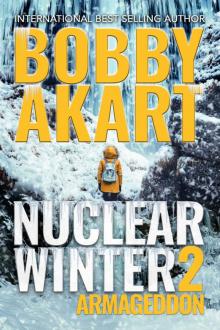 Nuclear Winter Armageddon
Nuclear Winter Armageddon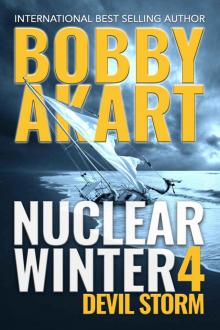 Nuclear Winter Devil Storm
Nuclear Winter Devil Storm Virus Hunters 3: A Medical Thriller
Virus Hunters 3: A Medical Thriller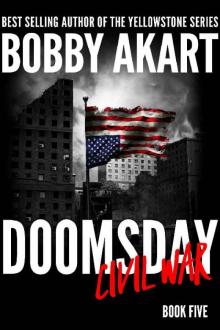 Doomsday Civil War: A Post-Apocalyptic Survival Thriller (The Doomsday Series Book 5)
Doomsday Civil War: A Post-Apocalyptic Survival Thriller (The Doomsday Series Book 5)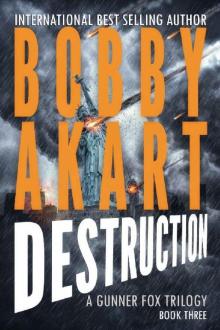 Asteroid Destruction
Asteroid Destruction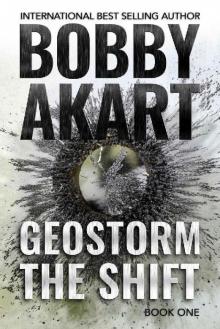 Geostorm the Shift
Geostorm the Shift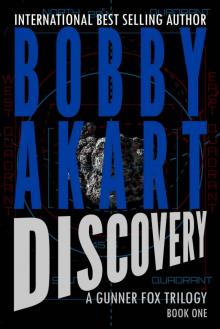 Asteroid Discovery
Asteroid Discovery Virus Hunters 2: A Medical Thriller
Virus Hunters 2: A Medical Thriller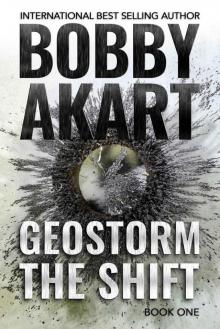 Geostorm The Shift: A Post-Apocalyptic EMP Survival Thriller (The Geostorm Series Book 1)
Geostorm The Shift: A Post-Apocalyptic EMP Survival Thriller (The Geostorm Series Book 1)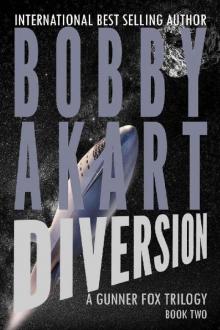 Asteroid Diversion
Asteroid Diversion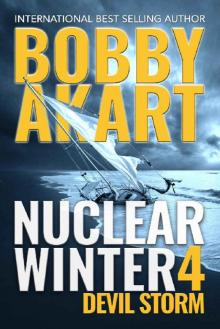 Nuclear Winter Devil Storm: Post Apocalyptic Survival Thriller (Nuclear Winter Series Book 4)
Nuclear Winter Devil Storm: Post Apocalyptic Survival Thriller (Nuclear Winter Series Book 4)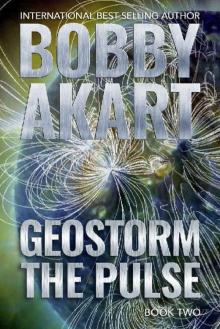 Geostorm The Pulse: A Post Apocalyptic EMP Survival Thriller (The Geostorm Series Book 2)
Geostorm The Pulse: A Post Apocalyptic EMP Survival Thriller (The Geostorm Series Book 2)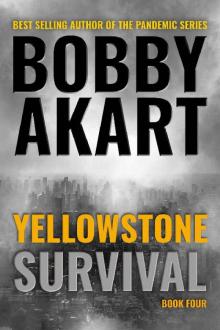 Yellowstone: Survival: A Post-Apocalyptic Survival Thriller (The Yellowstone Series Book 4)
Yellowstone: Survival: A Post-Apocalyptic Survival Thriller (The Yellowstone Series Book 4)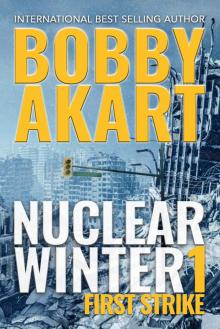 Nuclear Winter First Strike: Post-Apocalyptic Survival Thriller
Nuclear Winter First Strike: Post-Apocalyptic Survival Thriller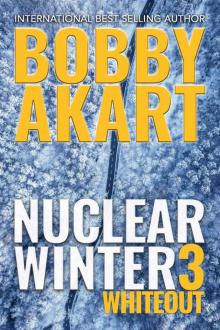 Nuclear Winter Whiteout
Nuclear Winter Whiteout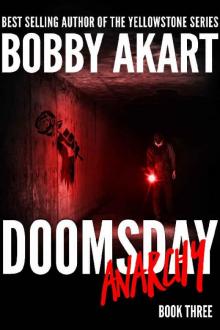 Doomsday Anarchy
Doomsday Anarchy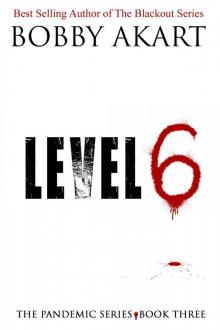 Pandemic: Level 6: A Post Apocalyptic Medical Thriller Fiction Series (The Pandemic Series Book 3)
Pandemic: Level 6: A Post Apocalyptic Medical Thriller Fiction Series (The Pandemic Series Book 3) Martial Law
Martial Law Odessa Reborn: A Terrorism Thriller (Gunner Fox Book 4)
Odessa Reborn: A Terrorism Thriller (Gunner Fox Book 4)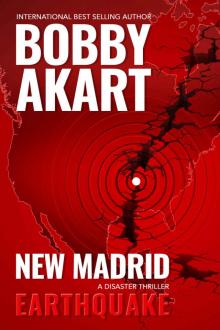 New Madrid Earthquake
New Madrid Earthquake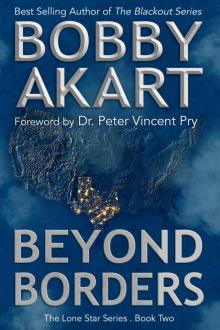 Beyond Borders: Post Apocalyptic EMP Survival Fiction (The Lone Star Series Book 2)
Beyond Borders: Post Apocalyptic EMP Survival Fiction (The Lone Star Series Book 2)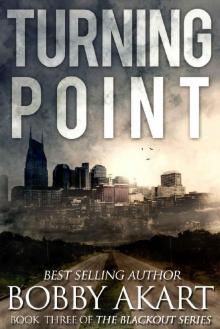 The Blackout Series (Book 3): Turning Point
The Blackout Series (Book 3): Turning Point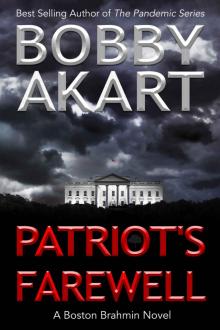 Patriot's Farewell: A Political Thriller Fiction Series (Boston Brahmin Political Thrillers Book 7)
Patriot's Farewell: A Political Thriller Fiction Series (Boston Brahmin Political Thrillers Book 7)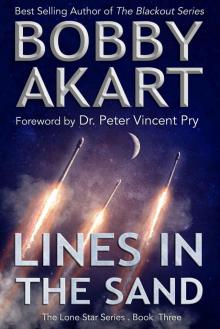 Lines in the Sand_Post Apocalyptic EMP Survival Fiction
Lines in the Sand_Post Apocalyptic EMP Survival Fiction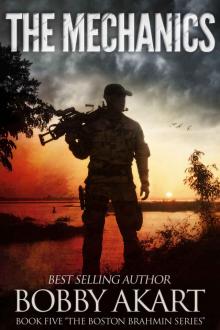 The Mechanics: A Post-Apocalyptic Fiction Series
The Mechanics: A Post-Apocalyptic Fiction Series The Loyal Nine
The Loyal Nine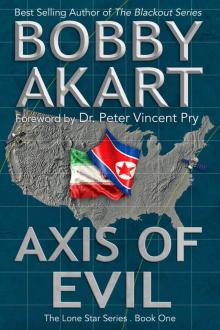 Axis of Evil
Axis of Evil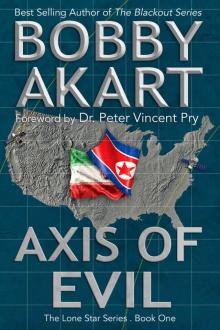 Axis of Evil: Post Apocalyptic EMP Survival Fiction (The Lone Star Series Book 1)
Axis of Evil: Post Apocalyptic EMP Survival Fiction (The Lone Star Series Book 1)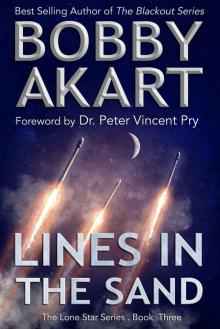 Lines in the Sand: Post Apocalyptic EMP Survival Fiction (The Lone Star Series Book 3)
Lines in the Sand: Post Apocalyptic EMP Survival Fiction (The Lone Star Series Book 3) Odessa Strikes
Odessa Strikes The Blackout Series (Book 4): Shiloh Ranch
The Blackout Series (Book 4): Shiloh Ranch Hornet's Nest: A Post Apocalyptic EMP Survival Fiction Series (The Blackout Series Book 5)
Hornet's Nest: A Post Apocalyptic EMP Survival Fiction Series (The Blackout Series Book 5) Yellowstone: Fallout: A Post-Apocalyptic Survival Thriller (The Yellowstone Series Book 3)
Yellowstone: Fallout: A Post-Apocalyptic Survival Thriller (The Yellowstone Series Book 3)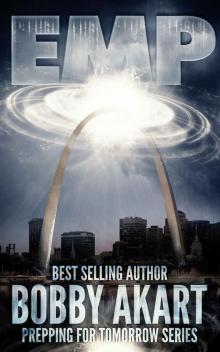 Electromagnetic Pulse
Electromagnetic Pulse Texas Strong: Post Apocalyptic EMP Survival Fiction (The Lone Star Series Book 4)
Texas Strong: Post Apocalyptic EMP Survival Fiction (The Lone Star Series Book 4)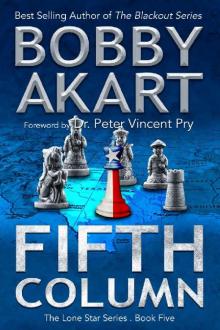 Fifth Column_Post Apocalyptic EMP Survival Fiction
Fifth Column_Post Apocalyptic EMP Survival Fiction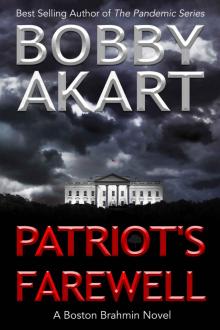 Patriot's Farewell
Patriot's Farewell Texas Strong_Post Apocalyptic EMP Survival Fiction
Texas Strong_Post Apocalyptic EMP Survival Fiction Pandemic: The Innocents: A Post-Apocalyptic Medical Thriller Fiction Series (The Pandemic Series Book 2)
Pandemic: The Innocents: A Post-Apocalyptic Medical Thriller Fiction Series (The Pandemic Series Book 2) Shiloh Ranch: A Post Apocalyptic EMP Survival Fiction Series (The Blackout Series Book 4)
Shiloh Ranch: A Post Apocalyptic EMP Survival Fiction Series (The Blackout Series Book 4) Cyber Attack
Cyber Attack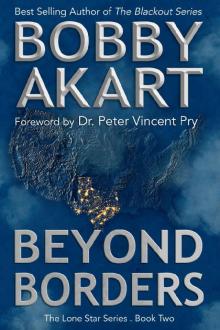 Beyond Borders
Beyond Borders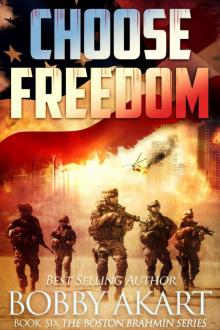 Choose Freedom: A Post-Apocalyptic Fiction Series (The Boston Brahmin Book 6)
Choose Freedom: A Post-Apocalyptic Fiction Series (The Boston Brahmin Book 6) False Flag
False Flag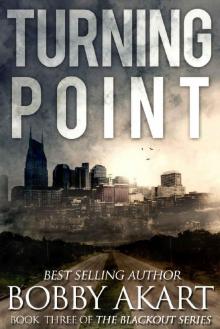 Turning Point: A Post Apocalyptic EMP Survival Fiction Series (The Blackout Series Book 3)
Turning Point: A Post Apocalyptic EMP Survival Fiction Series (The Blackout Series Book 3)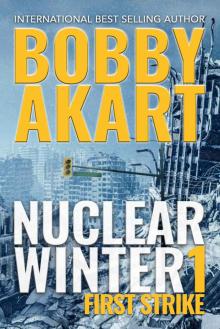 Nuclear Winter First Strike
Nuclear Winter First Strike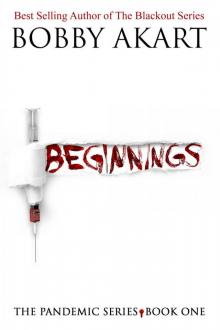 Pandemic: Beginnings: A Post-Apocalyptic Medical Thriller Fiction Series (The Pandemic Series Book 1)
Pandemic: Beginnings: A Post-Apocalyptic Medical Thriller Fiction Series (The Pandemic Series Book 1) Devil's Homecoming: A Post Apocalyptic EMP Survival Fiction Series (The Blackout Series Book 6)
Devil's Homecoming: A Post Apocalyptic EMP Survival Fiction Series (The Blackout Series Book 6) The Blackout Series (Book 6): Devil's Homecoming
The Blackout Series (Book 6): Devil's Homecoming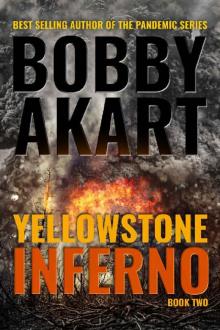 Yellowstone: Inferno: A Post-Apocalyptic Survival Thriller (The Yellowstone Series Book 2)
Yellowstone: Inferno: A Post-Apocalyptic Survival Thriller (The Yellowstone Series Book 2)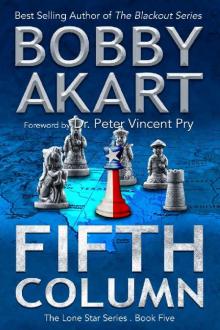 Fifth Column: Post Apocalyptic EMP Survival Fiction (The Lone Star Series Book 5)
Fifth Column: Post Apocalyptic EMP Survival Fiction (The Lone Star Series Book 5)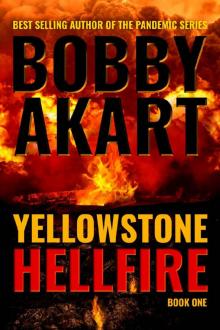 Yellowstone: Hellfire: A Post-Apocalyptic Survival Thriller (The Yellowstone Series Book 1)
Yellowstone: Hellfire: A Post-Apocalyptic Survival Thriller (The Yellowstone Series Book 1) The Blackout Series (Book 2): Zero Hour
The Blackout Series (Book 2): Zero Hour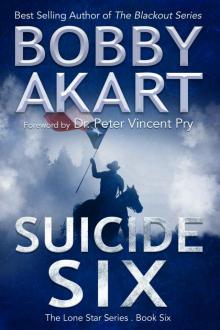 Suicide Six: Post Apocalyptic EMP Survival Fiction (The Lone Star Series Book 6)
Suicide Six: Post Apocalyptic EMP Survival Fiction (The Lone Star Series Book 6)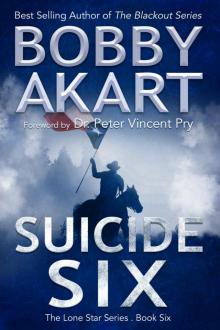 Suicide Six_Post Apocalyptic EMP Survival Fiction
Suicide Six_Post Apocalyptic EMP Survival Fiction Zero Hour: A Post-Apocalyptic EMP Survival Fiction Series (The Blackout Series Book 2)
Zero Hour: A Post-Apocalyptic EMP Survival Fiction Series (The Blackout Series Book 2)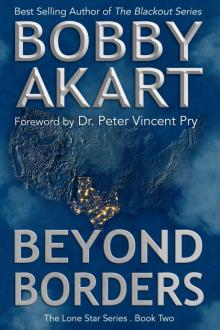 Beyond Borders_Post Apocalyptic EMP Survival Fiction
Beyond Borders_Post Apocalyptic EMP Survival Fiction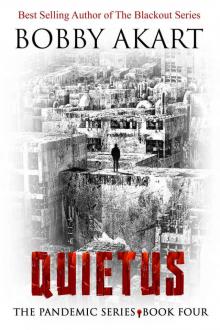 Pandemic: Quietus: A Post-Apocalyptic Dystopian Fiction Series (The Pandemic Series Book 4)
Pandemic: Quietus: A Post-Apocalyptic Dystopian Fiction Series (The Pandemic Series Book 4)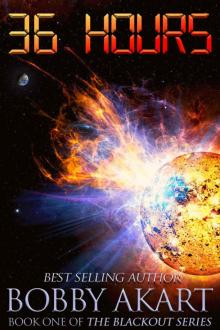 36 Hours: A Post-Apocalyptic EMP Survival Fiction Series
36 Hours: A Post-Apocalyptic EMP Survival Fiction Series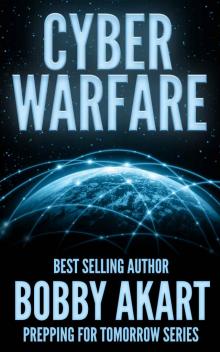 Cyber Warfare
Cyber Warfare